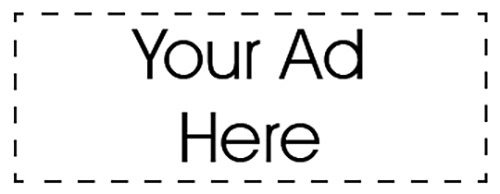
Advertising is important because it enables people to hear about your business if you have one, helps you locate a business if you need one and often funds the entertainment in which the advertising appears, such as perhaps the very pages you’re reading right now. The thing about advertising, unlike word of mouth, is that it’s controlled by the person or persons who want the business to succeed instead of the end users. That leads to some interesting outcomes.
For example, while waiting at the doctor’s office, you might notice the commercials advertising various medications and treatments. These are usually filled with laughing, happy people who are sailing or flying kites or bicycling while cuddling kittens and playing fetch with the dog, as someone sets a festive picnic table with bright-colored paper goods and balloons for everyone to get together and enjoy frosty drinks and delicious foods.
As the happy folks bounce around the screen and you try to imagine what they’re mouthing to each other, the narrator is describing in a light, upbeat voice all the potential side effects of the drug. As you watch the Frisbee fly you don’t focus on the diseases and deadly potential side effects, and the only message you remember is, “I should ask my doctor if this drug is right for me.” I tried that and he said, “No, you don’t need prenatal vitamins.” I’m still not convinced.
Sadly, I know of a woman who took a drug for a skin condition and ended up with one of the side effects: leukemia. She said, “When you sign the waivers you kind of skip the fine print because you never think it’s going to happen to you… but then it does.” Funny how that’s not the image you see in the ad.
A coffee slogan lilts happily, “The best part of waking up, is [unnamed brand of coffee inserted here] in your cup.” Do you mean to say that if I don’t have this coffee I might as well not get out of bed? That doesn’t sound very ambitious. In fact, I think the best part of waking up is actually waking up. It’s so much better than the alternative, if you know what I mean.
But that’s how the advertisers get you. They tell you how great their product is and how much you need it. It works for them because they get your business but it doesn’t show the whole picture. It doesn’t show what happens when things go south and the side effects kick in or the coffee keeps you up at night. There isn’t much truth in advertising because if they said, “This chewing gum will rot your teeth, cause TMJ and make you look like a ruminating bovine (read: cow chewing its cud)” they’d probably sell a lot less of it. Four out of five chewing gum manufacturers don’t recommend that sales approach.
We live in a world where all sorts of sales pitches come our way all the time. Whether it’s for food that may be unhealthy or expensive that looks so good and if you eat it you will be popular and fancy and sophisticated, or for things like shoes, clothes or handbags which promise to make you feel like a millionaire (which you probably have to be to afford them), you can’t trust everything you hear. We have people who promise us that they can do things for us better than anyone else and they may in fact be rather unprofessional.
The challenge is to separate the fact from the fantasy and identify what’s really good for us. Another great example is the shidduch market (which is terrible anyway because it sounds like a place for trading livestock). What people think is important in a shidduch is usually ridiculous and what’s important gets overlooked because it’s not as flashy and in-your-face.
I guess the greatest ad man of all time is the yetzer hara, Snazzy Sam. He makes everything that’s bad for you look oh-so-good. He wraps up death in a pretty ribbon and makes you think you’re eating candy while you swallow poison. Like the hucksters of yesteryear, he hawks his wares as the cure-all for everything from baldness to loneliness to ingrown toenails and keeping away dragons. (Have you seen any dragons lately? No? See? It works!)
If we realize that all these advertisers are interested in is their profits, we can start to really identify whether what we’re being sold is something we want to buy. If we practice that, and work at sniffing out the things that won’t be good for us, we’ll be better prepared to take on the challenges of Snazzy Sam and keep ourselves out of trouble. So a word of advice: The next time something that sounds too good to pass up comes your way, remind yourself it’s a sales pitch—and read the fine print.
Did you enjoy this column? Feedback is welcome and appreciated. E-mail [email protected] to share your thoughts. You never know when you may be the lamp that enlightens someone else.













